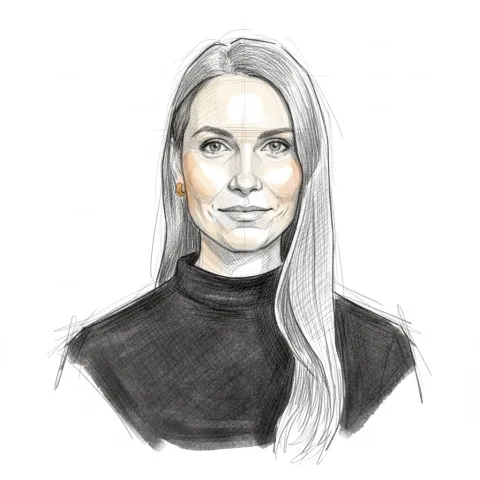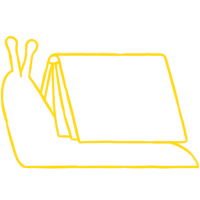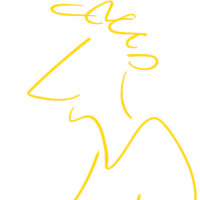A Founder's Human-First Mission
Ksenia Golubeva
CBDO and co-founder of AutiHD, advancing AI-powered neurodiversity support.
Every now and then, you meet a founder whose mission is so clear and personal that it cuts through all the noise. Ksenia Golubeva is one of those people. After more than a decade navigating the world of corporate innovation and high-volume startup deals, she saw a profound gap: a focus on process optimization over solving real human problems. What truly sets her journey apart is how she pivoted from that world to build AutiHD, a platform born from a deep-seated desire to create a more inclusive society for neurodivergent adults. In our conversation, you'll discover the personal experiences that shaped her conviction that the world doesn't need to 'fix' people, but rather, change to celebrate their differences. Her vision is simple yet powerful: to build a world where every person has the space and support to grow.
You managed a deal flow of over 3,000 startups and launched dozens of corporate pilots. What fundamental gap did you observe in that world that led you to build something as purpose-driven as AutiHD?
AutiHD wasn’t born from a business plan or a decision to ‘launch another startup.’ It started with listening to people. We spoke with dozens of individuals before we even considered building a product. Their stories, their challenges, and their experiences with autism and ADHD shaped everything. That process of listening has never stopped; we adapt our solution daily based on user feedback. My previous experience taught me two crucial lessons: first, you must always start with the real-world problems of your users, not your own assumptions. And second, there is a profound lack of solutions truly focused on improving people's everyday quality of life. Those two realizations were the real catalysts behind my decision to co-found AutiHD.
Your passion for neurodiversity seems deeply personal. Can you trace the origins of this commitment, from your early career to the moment you decided to dedicate yourself to this cause?
Fast forward nearly 15 years, I moved to Luxembourg and met my co-founder, Joël. He completely shattered the narrow stereotypes I, like many, held about autism, which were largely shaped by films like 'Rain Man.' Getting to know Joël, a super smart and funny person, didn't align with that outdated mental image. As he shared his story, I had a critical realization: the challenges don't just disappear after childhood. They persist through university and into the workplace, where individuals are again pressured to fit into rigid boxes, often at the expense of their true talents. It struck me that despite the years and the change in country, the fundamental problem was the same. Society still struggles to see beyond stereotypes. That’s why our mission feels so urgent.
Beyond building a great product, what systemic shifts in policy and societal mindset are critical to truly unlock the potential of neurodivergent adults?
Access is the second critical piece. Right now, adults with autism or ADHD often have little to no access to affordable tools, coaching, or accommodating workplaces. Digital solutions like ours should be recognized and reimbursed by insurance systems, so that support isn't a luxury available only to those who can pay out of pocket.
Finally, we need to embed structural flexibility into our workplaces. Things like flexible hours, remote work options, or roles adapted to an individual's strengths shouldn't be seen as special privileges. For many people, they are essential for being able to contribute their best work and participate fully.

When you're building a platform for a community as diverse as neurodivergent individuals, assumptions can be dangerous. What has been the most significant 'aha' moment that fundamentally reshaped your product strategy?
This realization forced us to completely rethink our product. We moved away from the idea of creating 'a solution' and embraced the concept of building a flexible, adaptable toolkit. It's not about us telling users what to do; it's about giving them a set of tools that they can configure and use in a way that works for their unique brain and their specific needs. It's a continuous process of learning and adapting.

Mindory leverages AI for personalized support. Could you walk us through how this works in practice, from detecting stress to suggesting coping strategies, and how you've built a foundation of trust and transparency for your users?
For our users, trust is everything. We operate on a principle of explainable AI, which means every suggestion or recommendation can be traced back to the specific signal that triggered it. There's no black box. Users have full control and can opt in or out of data sharing at any time. All health-related data is stored in strict compliance with GDPR, and we are completely transparent about what we collect and why we need it to make the app work effectively.
You've chosen Luxembourg as your launchpad. How does this unique, multilingual ecosystem serve your strategy, and what is your roadmap for scaling across Europe, particularly regarding reimbursement and partnerships?
Looking forward, our key scaling strategy revolves around reimbursement. We are actively working towards having our solution covered by insurance. This is a realistic goal, as many European countries are adopting more flexible policies for digital health tools. This path will allow us to scale while ensuring the product remains accessible.
Simultaneously, we are building partnerships with companies committed to improving workplace inclusion. We see a powerful dual-channel approach: scaling through the healthcare system while also working directly with employers who understand the value of supporting their neurodivergent talent. This combined strategy gives us a distinct and powerful position in the European market.
You're operating with a hybrid B2C and B2B2C model. How is this strategy performing, and what are the early signals from users, like your 58% retention rate, telling you about what's resonating most deeply with them?
The early traction is really encouraging. A retention rate of 58% tells us that we're building something that provides consistent value. When we dig into the data, the most-used features are consistently the AI support chat and the organizer. This feedback is invaluable because it confirms our core hypothesis: users are looking for both proactive support and practical tools to structure their day. These insights are directly shaping our roadmap for the next six months.

Looking ahead, how do you see the conversation around neurodiversity evolving in the workplace, and what is the ultimate role of a platform like Mindory in creating these truly inclusive environments?
This is precisely where Mindory fits in. We are focused on supporting people with autism and ADHD in their everyday routines, whether it's organizing tasks, managing stress, or maintaining balance. When people feel more confident and less overwhelmed in their personal lives, they can bring their authentic selves and their unique strengths to the workplace. So, I see AI-powered platforms not just as 'workplace tools,' but as life companions that help neurodivergent people thrive every day. By doing that, we naturally help create more inclusive and effective teams.










Share moment
Choose where you'd like to share this interview moment: